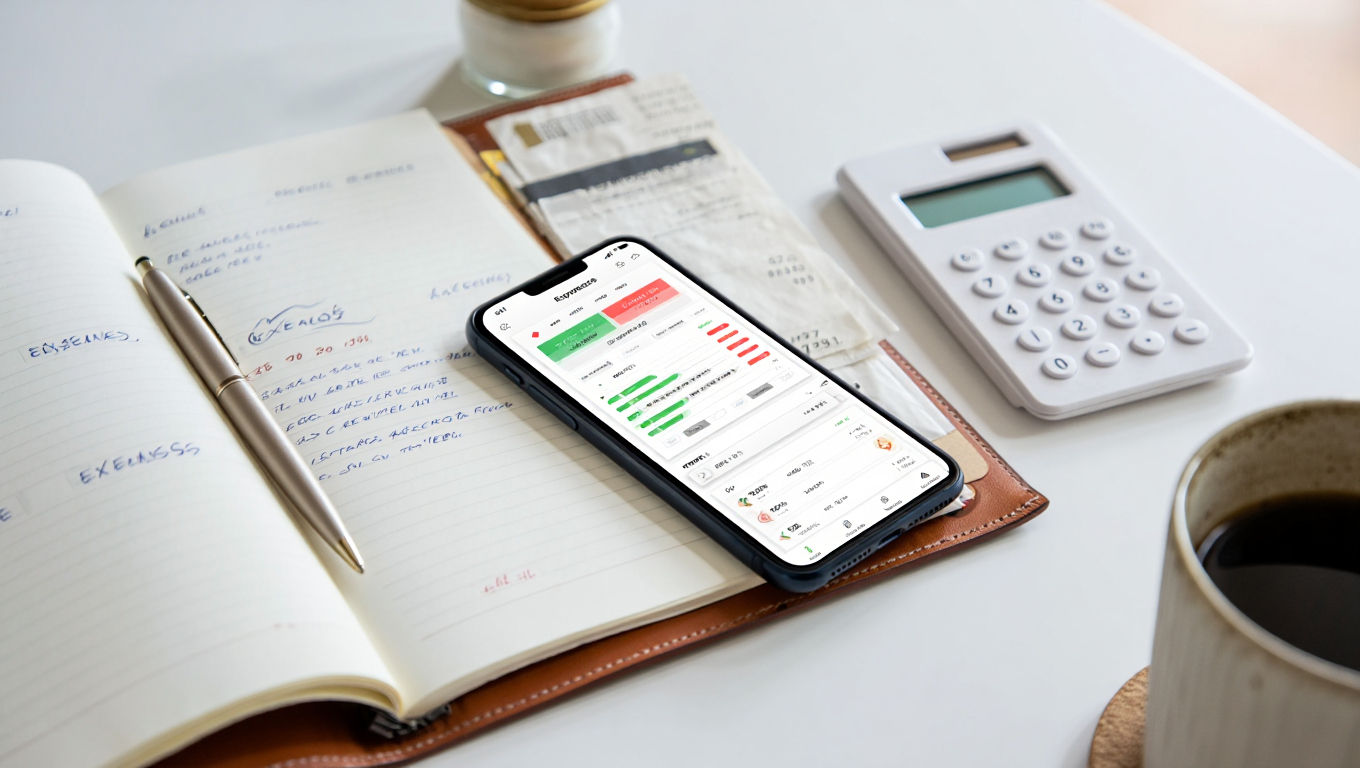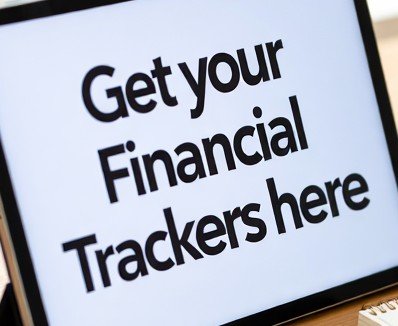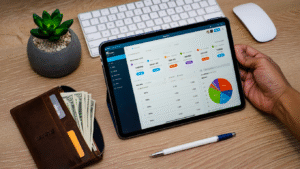
Feeling like your money disappears each month?
You’re not alone. Learning how to track your finances is the first step to gaining financial freedom—and it’s easier than you think.
This complete guide will walk you through what financial tracking is, why it matters, how to get started, and the tools that make it simple.
🧠 What Is Financial Tracking—and Why Does It Matter?
Financial tracking is the practice of recording every dollar you earn, spend, save, and invest.
When you track your money, you:
- ✅ Understand exactly where your money is going
- ✅ Spot leaks and unnecessary spending
- ✅ Build better budgets based on real habits
- ✅ Hit financial goals faster (saving, investing, paying debt)
- ✅ Reduce money-related stress
Think of it like giving every dollar a job—and making sure it gets done.
SEO Tip: Regular financial tracking is essential for budgeting beginners, saving money faster, and improving financial literacy.
📋 Step 1: Know Your Numbers
Before you can improve your finances, you need to know your starting point.
Here’s what to gather:
| Category | What It Includes |
|---|---|
| Income | Salary, side hustles, freelance gigs (after taxes) |
| Fixed Expenses | Rent, insurance, subscriptions, car payments |
| Variable Expenses | Groceries, gas, entertainment, dining out |
| Savings & Debt | Emergency fund contributions, loan repayments |
🛠️ Pro Tip:
Use a financial snapshot spreadsheet or a budget app to easily log these figures in one place.
🧾 Step 2: Track Every Single Expense
You can’t control what you don’t measure.
Start today by tracking every dollar you spend.
📝 Ways to Track:
- Pen & Paper: Traditional but effective
- Digital Spreadsheet: (like Google Sheets or Excel)
- Automated Budget Apps:
- Mint
- YNAB (You Need a Budget)
- PocketGuard
🔥 Hybrid Method (Best for Beginners):
Use a simple monthly tracker where you input expenses manually, and it auto-calculates totals for you.
Keyword Reminder: How to track daily expenses | Best budget trackers for beginners
📊 Step 3: Categorize Your Spending
Breaking expenses into categories makes your spending habits crystal clear.
Common Budget Categories:
- 🏠 Housing (Rent, mortgage)
- ⚡ Utilities (Electricity, water, internet)
- 🍎 Groceries (Food, household essentials)
- 🚗 Transportation (Fuel, car maintenance, public transport)
- 🎉 Entertainment (Streaming services, hobbies, nights out)
- 💳 Debt Payments (Credit cards, loans)
- 🏦 Savings & Investments
Why Categorize?
- See where most of your money goes
- Identify easy areas to cut back
- Set more realistic budgets for next month
🔍 SEO Bonus Tip:
Using popular search terms like “best budgeting categories” helps boost visibility.
🎯 Step 4: Set Clear, Actionable Financial Goals
Tracking without a goal = wandering without a map.
Define exactly what you want your money to accomplish.
| Goal | Example Target |
|---|---|
| Build an Emergency Fund | Save $1,000 in 6 months |
| Pay Off Credit Card Debt | Pay $5,000 in 18 months |
| Save for a Vacation | Set aside $2,000 in 12 months |
| Buy a Home | Grow a $15,000 down payment fund |
🏹 Make Goals SMART:
- Specific (Clear outcome)
- Measurable (Track progress)
- Achievable (Realistic)
- Relevant (Fits your priorities)
- Time-bound (Set a deadline)
📈 Motivation Tip:
Track your goal progress visually—use a progress thermometer chart or a goal tracker app.
🔄 Step 5: Review and Adjust Regularly
Financial tracking isn’t a one-and-done deal.
Successful budgeters review and adjust regularly.
Your Monthly Review Checklist:
- ✅ Compare budgeted vs. actual spending
- ✅ Check goal progress (are you on track?)
- ✅ Identify unexpected expenses
- ✅ Adjust next month’s budget based on learnings
📅 Set a 10-minute Weekly Money Check-In:
Treat it like an appointment you can’t miss. Consistency beats intensity!
🧠 Keeping It Simple: The Secret to Long-Term Success
Many beginners quit because they overcomplicate financial tracking.
Start simple:
- Focus on major categories only
- Use one spreadsheet or one app
- Do weekly 5–10 minute updates
🚀 Remember:
Progress > Perfection.
Small wins—like saving an extra $20 or spotting a useless subscription—compound over time into big financial victories.
⚡ Bonus Tools and Resources to Jumpstart Your Journey
🛠️ Best Free Financial Tracking Tools:
- Mint: Budgeting + expense tracking (free)
- YNAB: Helps you “give every dollar a job” (paid, with free trial)
- EveryDollar: Zero-based budgeting made easy
🧾 Free Printable Budget Templates:
- Monthly expense tracker
- Debt payoff tracker
- Weekly savings challenge sheets
🚀 Final Thoughts: Take Control of Your Money Today
Tracking your finances might sound tedious, but it’s actually the key to unlocking financial freedom.
With just a few simple habits:
- You’ll spend with confidence
- You’ll save smarter and faster
- You’ll ditch debt for good
- You’ll build a future you’re excited about
🎯 Ready to take control of your money?
Start today with our easy-to-use Financial Tracking Google sheets—built for beginners who want fast, clear results.


